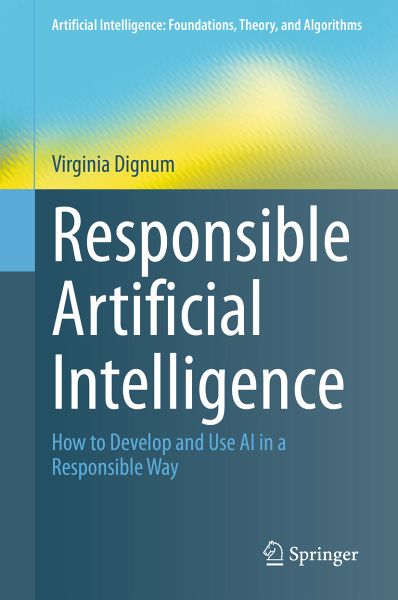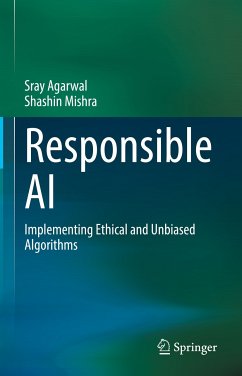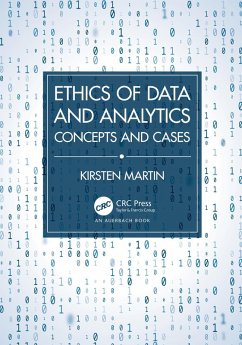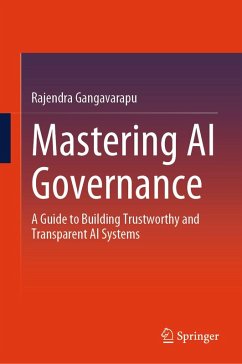
Responsible Artificial Intelligence (eBook, PDF)
How to Develop and Use AI in a Responsible Way
Versandkostenfrei!
Sofort per Download lieferbar
44,95 €
inkl. MwSt.
Weitere Ausgaben:

PAYBACK Punkte
22 °P sammeln!
In this book, the author examines the ethical implications of Artificial Intelligence systems as they integrate and replace traditional social structures in new sociocognitive-technological environments. She discusses issues related to the integrity of researchers, technologists, and manufacturers as they design, construct, use, and manage artificially intelligent systems; formalisms for reasoning about moral decisions as part of the behavior of artificial autonomous systems such as agents and robots; and design methodologies for social agents based on societal, moral, and legal values. Throu...
In this book, the author examines the ethical implications of Artificial Intelligence systems as they integrate and replace traditional social structures in new sociocognitive-technological environments. She discusses issues related to the integrity of researchers, technologists, and manufacturers as they design, construct, use, and manage artificially intelligent systems; formalisms for reasoning about moral decisions as part of the behavior of artificial autonomous systems such as agents and robots; and design methodologies for social agents based on societal, moral, and legal values.
Throughout the book the author discusses related work, conscious of both classical, philosophical treatments of ethical issues and the implications in modern, algorithmic systems, and she combines regular references and footnotes with suggestions for further reading. This short overview is suitable for undergraduate students, in both technical and non-technical courses, andfor interested and concerned researchers, practitioners, and citizens.
Dieser Download kann aus rechtlichen Gründen nur mit Rechnungsadresse in A, B, BG, CY, CZ, D, DK, EW, E, FIN, F, GR, HR, H, IRL, I, LT, L, LR, M, NL, PL, P, R, S, SLO, SK ausgeliefert werden.












